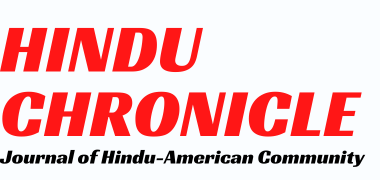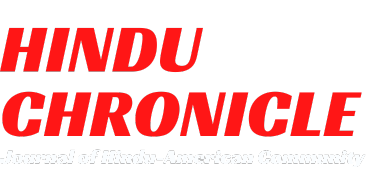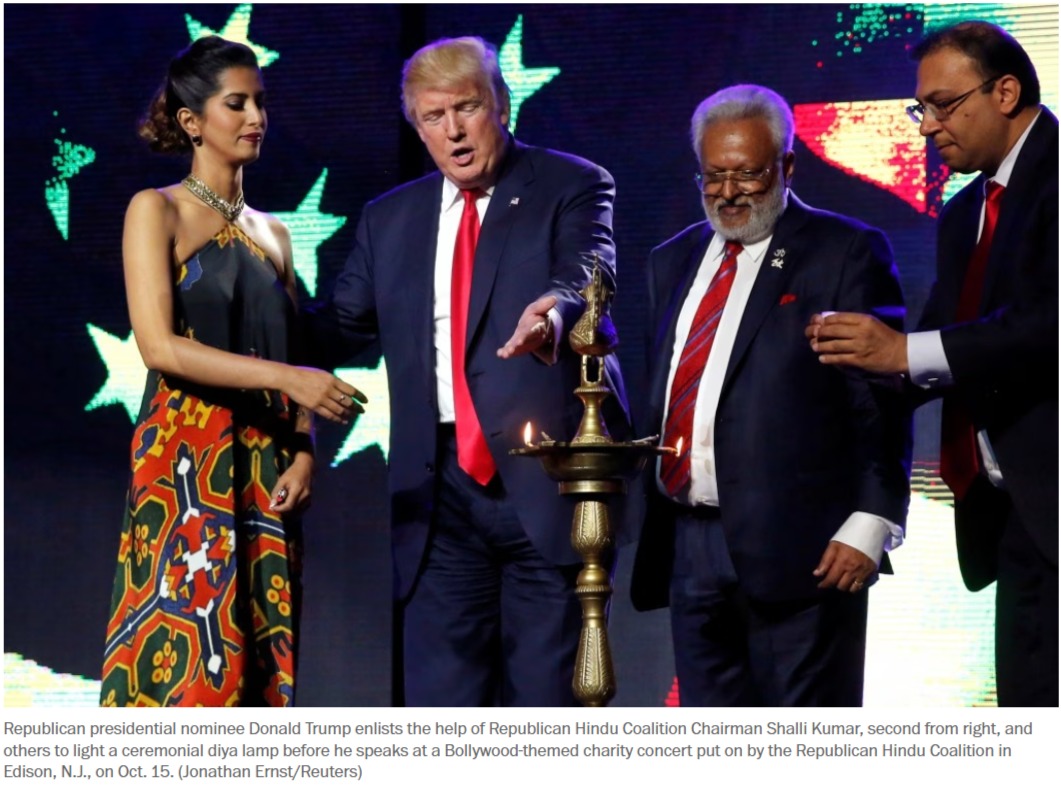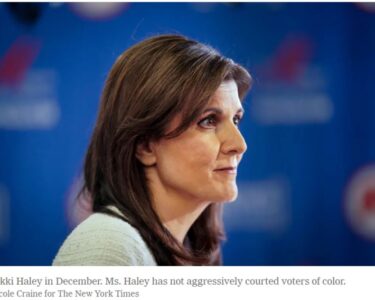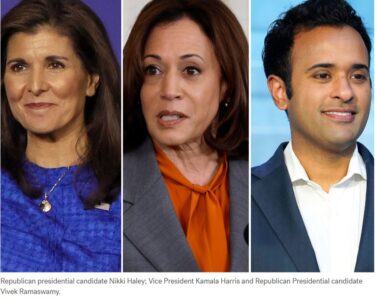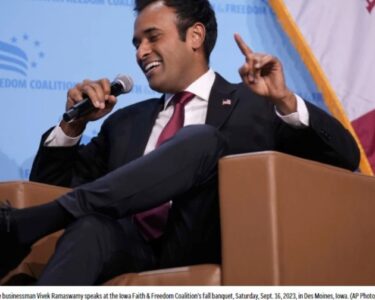By Kanchan Chandra
Kanchan Chandra is a professor of politics at New York University whose research focuses on comparative ethnic politics.
“If I am elected president,” said Donald Trump, speaking on Saturday to a gathering in Edison, N.J., organized by the Republican Hindu Coalition, “the Indian and Hindu community will have a big friend in the White House.” In that speech, Trump tried to appeal to Hindus among Indian Americans in three ways:
First, he equated Indians with Hindus, erasing India’s religious minorities — 172 million Muslims, 28 million Christians, 21 million Sikhs and 8 million Buddhists, among others — from the picture.
Second, he equated his position on Islamic terrorism with that of India’s government. As he put it: “We appreciate the great friend that India has been to the United States in the fight against radical Islamic terrorists . . . we are going to be best friends.”
Third, he equated himself with Indian Prime Minister Narendra Modi. “I look forward to working with Prime Minister Modi who has been very energetic in reforming India’s bureaucracy. Great man, I applaud him. I look forward to doing some serious bureaucratic trimming right here in the United States . . .”
Several news sources suggested that even though the majority of Indian Americans do not support Trump, his effort to associate himself with Modi and his anti-Muslim rhetoric might win him some support. The New York Times, for example, reported that his tracking of the language of Mr. Modi “has given Mr. Trump a foothold of support among Hindus in the United States, some of whom are also drawn to his strong talk about Muslims, their longtime adversaries on the subcontinent.” WNYC reported, “The other way that Trump aligns with some Indians and Hindus in the U.S. is his proposed ban of allowing Muslim immigrants to enter the U.S. For decades Hindus and Muslims in India have been fighting and there were outbreaks in the late 1980s that left hundreds dead. So to some extent these two communities continue to harbor suspicious against each other. . . . Trump did get a rise out of the crowd when he mentioned fighting radical Islam.”
But the real story when it comes to the political preferences of Indian Americans — and Hindus in particular — is not that Trump’s anti-Muslim rhetoric is attracting some, but that it is repelling most. According to the 2016 National Asian American Survey, conducted in August and September, only 7 percent voted for Trump in the primaries and only 7 percent report that they are likely to vote for him in the presidential election.
In the 2012 presidential election, according to the 2012 post-election National Asian American Survey, 16 percent of Indian Americans voted for the Republican nominee Mitt Romney.
Read the rest @ https://www.washingtonpost.com/news/global-opinions/wp/2016/10/20/why-most-indian-american-hindus-do-not-support-trump/
